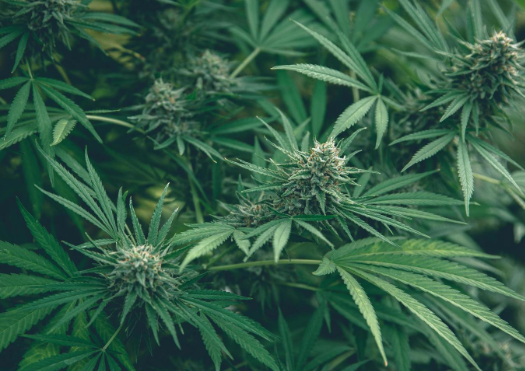Sleep plays a vital role in our overall well-being. It is a time when our body and mind recharge and repair themselves. However, many individuals struggle with sleep-related issues such as insomnia and poor sleep quality. In recent years, there has been growing interest in the potential benefits of cannabis for sleep. In this article, we will delve into the topic of cannabis and sleep, uncovering its benefits for rest and rejuvenation.
Benefits of Cannabis for Sleep
Cannabis, often referred to as marijuana, has been used for medicinal purposes for centuries. It contains various compounds known as cannabinoids, which interact with the body’s endocannabinoid system. This system plays a crucial role in regulating sleep, among other functions. Here are some key benefits of cannabis for sleep:
Promotion of Relaxation
One of the primary reasons people turn to cannabis for sleep is its ability to induce relaxation. Cannabis has calming properties that can help alleviate stress and anxiety, which are common culprits of sleep disturbances. By promoting relaxation, cannabis can create the ideal environment for a good night’s sleep.
Reduction of Insomnia Symptoms
Insomnia, characterized by difficulty falling asleep or staying asleep, affects millions of individuals worldwide. Cannabis has shown promise in reducing insomnia symptoms. Certain strains of cannabis, particularly those high in the cannabinoid CBD (cannabidiol), have been found to have sedating effects, making it easier to fall asleep and stay asleep throughout the night.
Pain Relief
Chronic pain can significantly impact sleep quality, leading to sleep deprivation and fatigue. Cannabis has analgesic properties that can provide relief from pain, allowing individuals to experience more restful sleep. The cannabinoids in cannabis interact with pain receptors in the body, reducing discomfort and promoting a sense of comfort.
Regulation of Sleep-Wake Cycle
The endocannabinoid system plays a crucial role in regulating the sleep-wake cycle, also known as the circadian rhythm. Cannabis can help restore balance to this system, promoting a more regular sleep pattern. By aligning the body’s natural sleep-wake cycle, cannabis can improve the overall quality of sleep.
REM Sleep Suppression
Rapid Eye Movement (REM) sleep is a stage of sleep associated with vivid dreaming. While REM sleep is important for cognitive function, excessive REM sleep can disrupt the sleep cycle and lead to poor sleep quality. Cannabis has been found to suppress REM sleep, allowing individuals to experience a more restorative and uninterrupted sleep.
Anxiety and PTSD Relief
Anxiety disorders and post-traumatic stress disorder (PTSD) are often linked to sleep disturbances. Cannabis, particularly strains high in CBD, has shown promise in reducing anxiety and alleviating symptoms of PTSD. By addressing the underlying anxiety, cannabis can help individuals achieve a state of calmness conducive to a good night’s sleep.
Sleep Apnea Management
Sleep apnea is a sleep disorder characterized by interrupted breathing during sleep. It can lead to daytime fatigue and increased health risks. Recent studies suggest that cannabis may help manage sleep apnea by improving breathing patterns and reducing the frequency of interruptions during sleep.
Muscle Relaxation
Muscle tension and spasms can disrupt sleep and cause discomfort. Cannabis has muscle relaxant properties that can help ease tension and promote muscle relaxation. By soothing the body, cannabis can contribute to a more peaceful and rejuvenating sleep experience.
FAQs about Cannabis and Sleep
Q: How does cannabis affect sleep?
Cannabis affects sleep by interacting with the body’s endocannabinoid system, which plays a role in regulating sleep. It can promote relaxation, reduce insomnia symptoms, alleviate pain, regulate the sleep-wake cycle, suppress REM sleep, and manage conditions such as anxiety and sleep apnea.
Q: What is the best strain of cannabis for sleep?
Different strains of cannabis have varying effects on sleep. Indica strains, known for their calming and sedating properties, are often recommended for sleep. Strains high in CBD and low in THC (tetrahydrocannabinol) are also preferred for their potential sleep-inducing effects.
Q: Can cannabis help with sleep disorders?
Yes, cannabis has shown promise in helping with various sleep disorders. It can alleviate symptoms of insomnia, sleep apnea, and restless leg syndrome. However, it is essential to consult with a healthcare professional before using cannabis as a sleep aid, especially if you have an existing sleep disorder.
Q: Is cannabis safe for long-term use as a sleep aid?
The long-term safety of using cannabis as a sleep aid is still being studied. While cannabis can be effective in the short term, there may be potential risks associated with prolonged use. It is important to use cannabis responsibly and discuss any concerns with a healthcare professional.
Q: Are there any side effects of using cannabis for sleep?
Like any substance, cannabis can have side effects. These may include dry mouth, dizziness, impaired coordination, and short-term memory issues. The severity of side effects can vary depending on the individual and the specific strain of cannabis used.
Q: Can cannabis be used in combination with other sleep aids?
Combining cannabis with other sleep aids, such as prescription medications, should only be done under the guidance of a healthcare professional. Drug interactions can occur, and it is essential to ensure the safety and effectiveness of any combination.
Conclusion
Cannabis holds promising potential as a natural remedy for sleep-related issues. Its ability to promote relaxation, alleviate pain, regulate the sleep-wake cycle, and reduce anxiety makes it an intriguing option for those seeking better sleep and rejuvenation. However, it is important to approach cannabis use for sleep with caution, considering individual needs and potential risks. Consulting with a healthcare professional can provide valuable guidance on incorporating cannabis into a sleep routine. With further research and understanding, cannabis may unlock even more benefits for restful and rejuvenating sleep.
